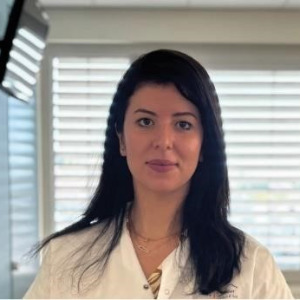Antibody-Drug Conjugates (ADCs)
Targeted cancer therapies have revolutionized oncology by offering precision treatment options that minimize harm to healthy tissues. Among these innovations, Antibody-Drug Conjugates (ADCs) have emerged as a highly promising class of therapeutics. ADCs are designed to combine the specificity of monoclonal antibodies with the cytotoxic potency of chemotherapeutic agents, allowing drugs to be delivered directly to cancer cells while sparing normal tissues. This targeted approach not only enhances efficacy but also reduces systemic side effects, making treatment more tolerable for patients. Research into tumor markers, cell surface antigens, and mechanisms of drug resistance has been crucial in optimizing ADC design, ensuring that these therapies reach the right target while overcoming challenges posed by the tumor microenvironment.
The clinical impact of Antibody-Drug Conjugates (ADCs) is increasingly evident as multiple ADCs gain approval for hematologic and solid tumors. Innovations in linker technology, payload selection, and antibody engineering have expanded the therapeutic window, improving both safety and effectiveness. Moreover, ongoing clinical trials are exploring combination strategies with immunotherapies and targeted agents to further enhance anti-tumor activity. As understanding of tumor biology deepens, ADCs are expected to play a pivotal role in precision oncology, offering patients highly tailored treatments with the potential for durable responses. These therapies represent a critical frontier, bridging conventional chemotherapy and advanced targeted strategies to redefine the modern landscape of cancer care.

Rajvir Dahiya
University of California San Francisco, United States
Atif A Ahmed
University of Washington-Seattle Children’s Hospital, United States
Thomas J Webster
Northeastern University, United States
Paulo Cesar De Morais
Catholic University of Brasilia, Brazil
Allen Chen
Olympic Medical Center, United States
Shilpa S Dhar
UT MD Anderson Cancer Center, United States



Title : A novel blood-based mRNA genomics technology for cancer diagnosis and treatment
Rajvir Dahiya, University of California San Francisco, United States
Title : Nanomedicine in humans: 30 years of fighting diseases
Thomas J Webster, Northeastern University, United States
Title : Diagnosis and treatment of primary cardiac lymphoma in an immunocompetent 27-year-old man
Moataz Taha Mahmoud Abdelsalam, Madinah Cardiac Center, Saudi Arabia
Title : tRNA-derived fragment 3′tRF-AlaAGC modulates cell chemoresistance and M2 macrophage polarization via binding to TRADD in breast cancer
Feng Yan, The Affiliated Cancer Hospital of Nanjing Medical University, China
Title : Multiplexed biosensor detection of cancer biomarkers
Michael Thompson, University of Toronto, Canada
Title : Personalized and Precision Medicine (PPM) through the view of biodesign-inspired translational research: An option for clinical oncologists, caregivers, and consumers to realize the potential of genomics-informed care to secure human biosafety
Sergey Suchkov, N.D. Zelinskii Institute for Organic Chemistry of the Russian Academy of Sciences, Russian Federation